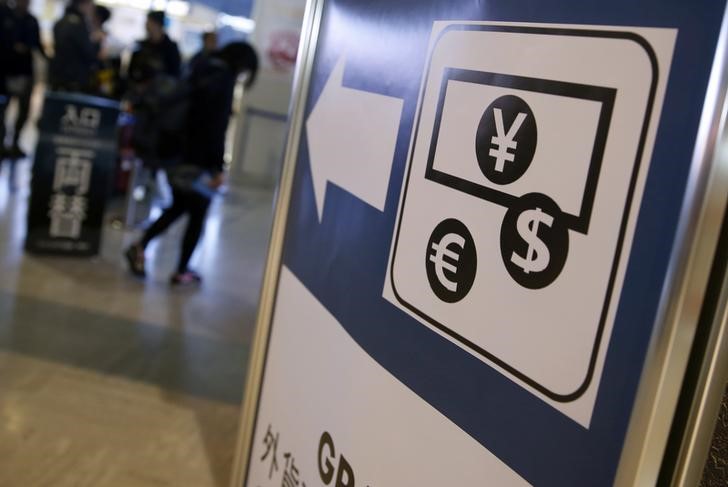 © Reuters. BOJ Holds Firm to Deepen Outlier Status, Keep Pressure on Yen
© Reuters. BOJ Holds Firm to Deepen Outlier Status, Keep Pressure on Yen
(Bloomberg) -- The Bank of Japan held firm with its rock-bottom interest rates Friday, resisting an intensifying global wave of central bank tightening and recent market pressure on the yen and government bonds.
The central bank kept its policy settings for yield curve control and asset purchases, according to a statement Friday, in line with the forecasts of almost all surveyed economists. In a rare move, the bank added a reference to foreign exchange rates to its list of risks after the yen rapidly weakened to its lowest level in 24 years earlier this week.
“In this situation, it is necessary to pay due attention to developments in financial and foreign exchange markets and their impact on Japan’s economic activity and prices,” the central bank said in a statement, referring to risks from commodities, Covid-19, the war in Ukraine and overseas economic developments.
Governor Haruhiko Kuroda is pushing back against mounting pressure to normalize policy as central banks race to raise interest rates and market bets mount against the BOJ’s ceiling on yields. With the policy gap with the Federal Reserve widening, the governor’s strong easing stance has led to a rapid fall in the yen, fueling concerns among businesses and households ahead of a key national election for Prime Minister Fumio Kishida.
The yen whiplashed against the dollar immediately after the decision first weakening, then sharply strengthening, before weakening again. It remained off Wednesday’s 24-year low. After a battering earlier in the week, the currency has enjoyed some support after the Fed’s decision led to concerns over a possible US recession.
By increasingly standing out as an outlier among global peers, Kuroda risks further criticism over the yen. The governor has insisted on keep easing in place given the economy’s relatively slow recovery from the pandemic, warning that any premature tightening would weigh on the economy.
The Fed raised interest rates by 75 basis points Wednesday, and more hikes are expected to come in the months ahead. The European Central Bank is en route to ditching negative rates by the end of September as it pledged to curb market stress at an emergency meeting this week. The Swiss National Bank surprised Thursday with the first rate increase in 15 years, while the Bank of England also pushed up rates again.
(Adds more details from statement)
©2022 Bloomberg L.P.

